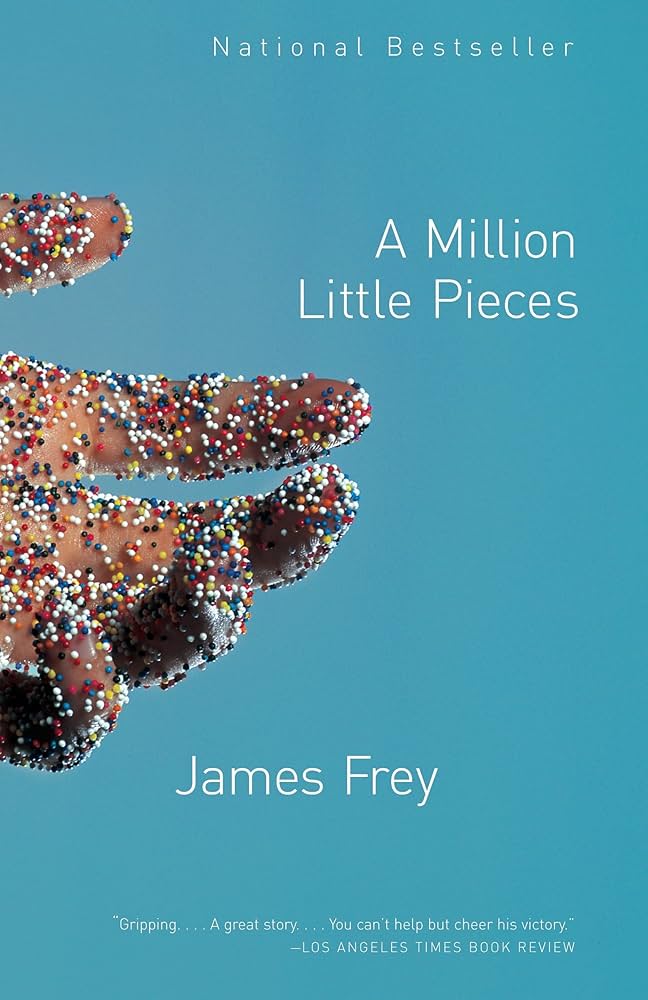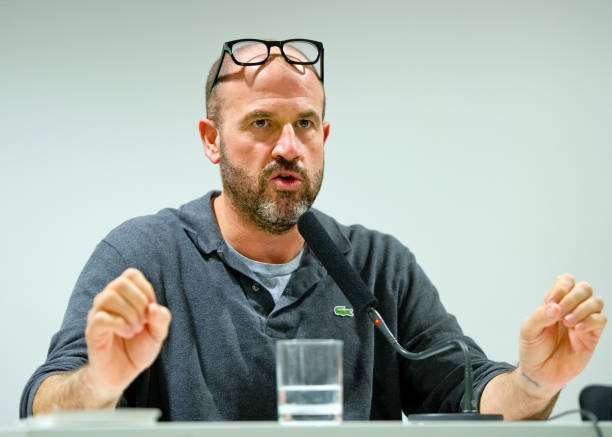Author James Frey is once again making headlines, nearly two decades after one of the most notorious literary controversies of the 21st century. Known for his 2003 book A Million Little Pieces, Frey has now opened up about the fallout from the scandal that changed the course of his career—and his complicated relationship with cultural icon Oprah Winfrey.

Frey’s words today are raw, defiant, and reflective. As he gears up to release a new novel titled Next to Heaven, the once-disgraced author is looking back at the explosive moments that shaped his public image, his creative journey, and his stubborn refusal to be silenced.
The Rise: A Bestseller and a Blessing from Oprah

When A Million Little Pieces first hit bookstores in 2003, it was marketed as a raw, unflinching memoir chronicling Frey’s personal battle with drug and alcohol addiction. His descent into addiction, stints in rehab, and apparent brushes with the law were told with gripping, emotional intensity.
In 2005, the book received a massive boost when it was selected for Oprah Winfrey’s Book Club. The endorsement launched the memoir into the spotlight and catapulted it to the top of bestseller lists. Millions of readers were moved by Frey’s account, seeing it as a story of redemption, resilience, and brutal honesty.
But that image didn’t last.
The Fall: A Scandal Erupts
In early 2006, a website known for investigative exposés published a report claiming that large parts of Frey’s memoir were fabricated. Police reports and other documentation reportedly contradicted Frey’s version of events—particularly surrounding his criminal past and time in prison.
The public was stunned. Readers felt betrayed. And Oprah, who had initially defended the book even after the allegations surfaced, eventually confronted Frey on her nationally televised talk show. In what became one of the most infamous interviews in TV history, she questioned his integrity in front of millions.
Frey admitted to exaggerating or fabricating certain elements of his story, especially regarding the severity of his legal troubles. The backlash was immediate and intense.
He lost his literary agent. News crews camped outside his home. Paparazzi targeted his family. The publishing world, and much of the public, turned on him.
Frey Speaks Out: “Brutal Hypocrisy”
Now, years later, Frey is speaking candidly about what he went through—and he isn’t holding back.
Calling the Oprah incident “brutal hypocrisy,” Frey questioned the fairness of being publicly shamed by someone he believes has also shaped narratives to suit her own story. “She told more lies to the public times a thousand than I ever have. And I’ll leave it at that,” he said pointedly.
To him, the scandal was like a tsunami. “It wrecked everything in its path. The career, the reputation, the privacy. All of it.”
And while Oprah did eventually invite him back on her show in 2011 to apologize for how the situation was handled, Frey still carries deep scars from the ordeal. His words today are filled with defiance.
“You might be the most influential lady in this world—you won’t stop me,” he declared. “I will lower my head and I will walk forward and I’ll keep throwing punches until I die. You can’t stop me.”
The Memoir Debate: Truth vs. Storytelling
At the heart of the controversy was a deeper question: what is truth in memoir?
Frey maintains that A Million Little Pieces is about “85 percent true.” He argues that many memoir writers manipulate facts or reorder events to create emotional resonance. To him, it’s a form of storytelling, not journalism.
“When Picasso makes a self-portrait, if it’s not photorealist, is it invalid?” he asked. “When Rembrandt painted self-portraits, is he allowed to manipulate the paint to make himself look however he wants himself to look?”
It’s an artistic defense that has long been debated in the literary world. Is a memoir about factual precision, or emotional truth? And should memoirists be held to the same standards as journalists?
Frey’s New Chapter: A Comeback with Next to Heaven

Despite the years of criticism, Frey never stopped writing. Over the past decade, he’s published several novels—both for adults and young readers—and even ventured into screenwriting and art.
Now, he’s preparing to release Next to Heaven, a thriller slated to hit shelves on June 17. Unlike his earlier work, this new novel is fully fictional, and Frey emphasizes that he wrote “every sentence” himself.
But even with his return to the literary scene, Frey says the world of writing has changed—and not necessarily for the better.
A Critique of Modern Publishing
In a striking commentary on today’s literary culture, Frey laments what he sees as a climate of fear among writers. According to him, modern authors are increasingly cautious, more concerned about public opinion and online backlash than creative expression.
“For a long time, writers were fearless sorts of people who held mirrors up to society and showed us what was up,” he said. “And that’s not the case anymore, right?”
He continued, “Writers are scared of getting canceled. Writers are scared of making work that makes people uncomfortable. Everybody wants a hug and a Pulitzer. I don’t. I don’t need either one.”
Frey’s words echo the sentiments of many creatives who feel boxed in by the pressures of political correctness, cancel culture, and an ever-watchful internet.
A Rebel to the End

Even after all these years, James Frey remains unapologetically himself. He admits to his mistakes but refuses to let them define or limit him. His approach to art, writing, and life is rooted in the belief that creators should be fearless and honest—even when it makes people uncomfortable.
“I’m a writer, I create books,” he said. “But I’m also something else. And I don’t know what that is, but I do things with art. I do whatever I want.”
And perhaps that’s what makes Frey such a compelling figure—not just a writer who fell from grace, but one who kept writing anyway.
